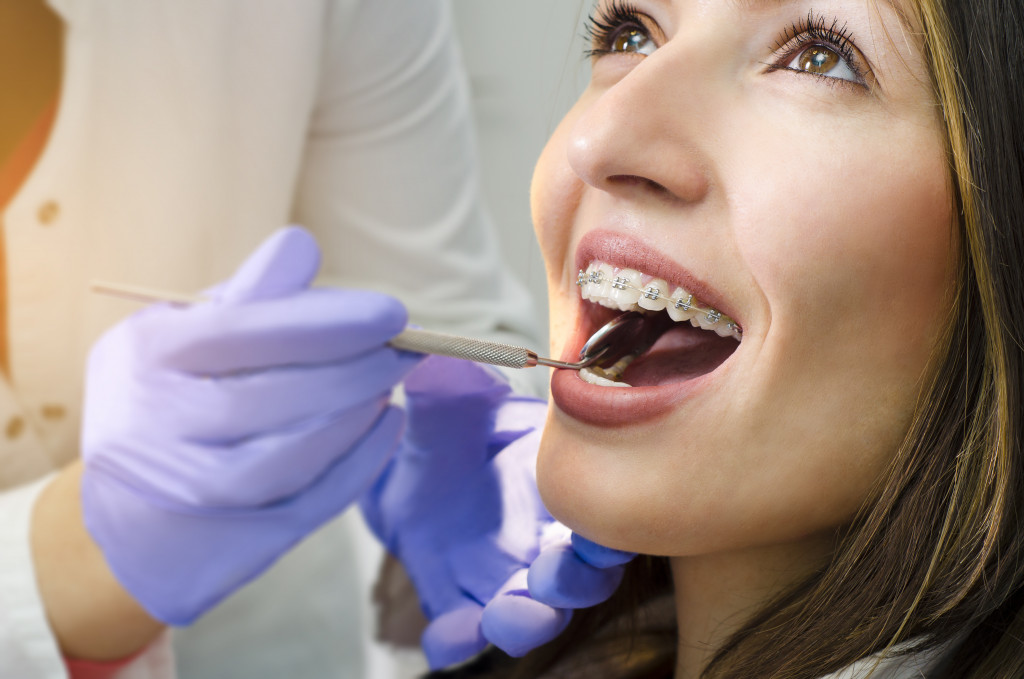Your oral health is an important part of your overall health. Oral health impacts every system in your body, including your heart and lungs, as well as how well you sleep. For example, a person with bad teeth may have difficulty chewing or eating certain foods, leading to malnutrition, weight loss, and a weakened immune system.
The bacteria found in your mouth can also spread to other parts of your body, causing infection and illness. In fact, oral health problems are one of the leading causes of hospitalization among children in the United States. Here are five ways your oral health can impact your overall wellness.
Gum disease and heart disease
Gum disease is one of the most common oral health problems in the United States and can lead to heart disease. When you have gum disease (also called periodontal disease), the bacteria that cause tooth decay can enter your bloodstream and travel to other parts of your body, including your heart.
Research has found that people with periodontal disease are twice as likely to develop coronary artery disease as those without periodontal infections. In addition, many people with heart attacks or strokes also have periodontal infections.
Diabetes
Your oral health can also affect your diabetes management. People with diabetes are more likely to develop periodontal disease than those without the disease, and poor oral health can lead to other complications as well. High blood sugar levels that are not well controlled can increase your risk of developing gum disease or tooth loss.
Poorly controlled blood glucose levels can also lead to a dry mouth which can cause bacteria to grow more easily, increasing your risk for periodontal disease. Individuals with diabetes are often advised to improve their oral health, as it can improve diabetes control. Poor oral health may also increase the risk of other complications associated with diabetes, such as heart disease and kidney failure.
Cancer

Oral cancer is the fifth most common cancer in the world. It can affect any part of the mouth and is often linked to smoking, alcohol use, and poor oral hygiene habits. Poor oral health can increase the risk of developing cancer.
The World Health Organization (WHO) estimates that almost half of all oral cancers are linked to tobacco use, while alcohol consumption and poor self-care habits (such as dental neglect) also increase your risk for developing this disease. Oral cancer can be treated, but early diagnosis is crucial. The best way to prevent oral cancer is by practicing good oral hygiene and maintaining regular dental visits.
Malnutrition
Your oral health also impacts your overall health, including your immune system. Eating a healthy diet can help you ward off disease and maintain good oral health. A lack of certain nutrients can leave you vulnerable to dental decay and gum disease, leading to tooth loss.
Many individuals suffering from oral health problems may have issues consuming certain foods, which can lead to malnutrition. This can be a problem for individuals who have trouble chewing or swallowing, are unable to afford food, or have difficulty eating due to other health problems. An orthodontist can help address these oral concerns with implants that restore missing teeth and prevent further tooth loss.
Pregnancy
Due to the fluctuating hormone levels women experience during pregnancy, they are at an increased risk of developing dental problems such as gum disease and tooth decay. This is because pregnancy causes the teeth to be more fragile, and the gums become softer. Pregnant women are also more likely to experience bleeding gums, which can lead to the loss of teeth if not treated quickly. Studies have also shown gum disease can be linked to preterm labor and low birth weight babies.
Women who are pregnant or breastfeeding should see their dentist on a regular basis to prevent oral health problems and ensure that their teeth remain healthy. The dentist can also advise you on how to care for your teeth during pregnancy, such as how often you need to brush your teeth and if there are any changes in your usual dental routine.
In Summary
Good oral health is essential for maintaining overall physical and mental well-being. These can help prevent common oral problems such as gum disease, tooth decay, and oral cancer. Oral health is also linked to other medical conditions, such as diabetes, heart disease, and malnutrition. Pregnant or breastfeeding women should also be aware of their increased risk for dental problems and seek regular care from a dentist to ensure optimal oral health. Taking the time to practice good oral hygiene habits and visiting the dentist can help protect your smile for years to come.
